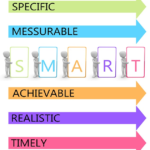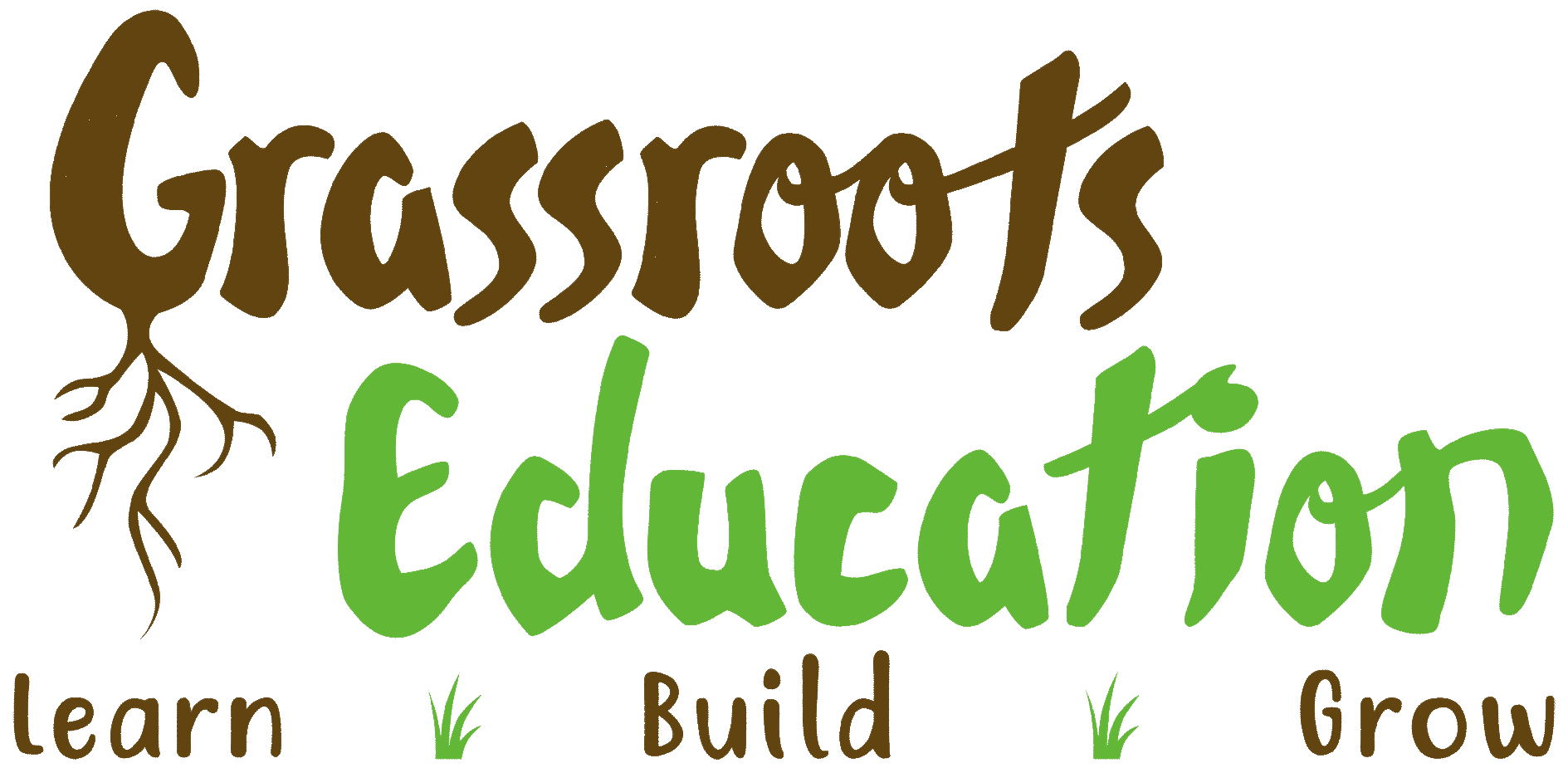
by Marcia Davis-Dawkins | Mar 14, 2018 | Education, Kids, Parents, Teachers, Teens
Change Our Positions!
 By Dr. Marcia Davis-Dawkins
By Dr. Marcia Davis-Dawkins
Socrates once said, “The secret of change is to focus all your energy, not on fighting the old, but on building the new.” Change can be difficult and I am sure most people would agree that they have had regrets, things that they could redo if given the opportunity. There are others who would say, “What is the point of starting over, I am not good at this so why bother!” I beg to differ. Change means reinventing one’s self and while difficult, is often necessary and ultimately rewarding. Lives may need to be modified after a failed marriage, a failed relationship, losing a loved one through death, changing a career path, losing, or starting a new job. In essence, change is usually a result of a heart being broken or a mind being opened. Some might say, why change when I am so old? In response, I am reminded of C. S. Lewis’ quote “You are never too old to set another goal or to dream a new dream.” 
Change is new process in our lives.
Why might adjustment be necessary? I learned to drive using a stick shift and it was very intense. I clearly remember the driving instructor saying that I should listen to the engine as this was an indicator that the gear needed to be changed after it reached a certain rev count. Sometimes in our personal lives, we need to change because the rev count is different. We need to change the way we think. We want to be transformed by the renewing of our minds. Many people use a new season to take inventory of their lives and try to change situations. For me the season is springtime, when there is a new burst of energy, new growth, new buds, freshness, birds chirping, simply newness. Springtime is especially meaningful for me since it’s when I celebrate my birthday. This year, I want to change from inside out. I will become more beautiful and set myself free, free to soar to new heights. Transition and difference describe the process that occurs within each of us when change happens. I firmly believe that it’s all about the process. What goes on within us as we go through the changes include the pats on the back, having “aha” moments, the getting to know self, and the skepticisms from people. But through it all I know that one of the things that makes a difference in the change process is to avoid and ignore people with negative vibes and surround myself/ourselves with positive people. Change means immersing yourself with people who will encourage and pat us on back. It also means doing more positive self-talk, setting positive affirmations and pushing in the direction where you are heading. This enables us to refocus, while celebrating the little steps made and shifting our attention on the goals set. Just because we started down one path does not mean that we need to finish on the same path. We have the power to say this is not the final destination, that this is not how the story ends. That type of thinking gives us validity to shift directions and allows for metamorphosis.
How do we relate to change in education?

If we have been teaching for a while, we realize that things are always changing – there is change in the curriculum, change in state tests, change in grade level that is taught, change in leadership, and redistricting. How do we adjust to the various changes? Generally, we adopt by changing our mindset and think positively and press towards the goals. We anticipate and adjust the process of transition and avoid resisting the change so that life can be productive. Let us let go of the past – guilt, anger love, loss, or betrayal and fight to move on –MAKE the CHANGE!
It’s Never Too Late To Start Over

by Marcia Davis-Dawkins | Feb 27, 2018 | Education, Kids, Parents, Teachers
It’s Never Too Late To Start Over

by Marcia Davis-Dawkins
Frank Sinatra once said, “So take a deep breath, pick yourself up, dust yourself off, start all over again.” No one likes to start over, but it usually makes more sense to start fresh. Starting over may mean creating something new and better. It might take a lot of patience or figuring out things. It can be tough just to start from the beginning, but the good thing about it is that you don’t need a new day. You are required to have a different prospective on things so you can stay focused and look towards the future and what your goals in life are. We have to believe in ourselves and realize that we have more potential than we think. We can be scared to fail, but we can pick ourselves up and start the process anew.
Perhaps you don’t have a class that you consider the “perfect class” this year. There is always the possibility of starting on a clean slate come September. Maybe you have to begin a new job in another location or you have a new capacity. Maybe you are going through a painful divorce and you are now single with children. Yet another scenario can be that you are now married and have to live a different lifestyle where you now you accountable for another human being. The possibilities are endless! Whatever the situation, you are given a second chance to work at whatever situation in which you are involved. Though devastating the situation, you have to find a way to walk in your path and make the best that you can with what you have. Many might feel like throwing in the towel and wallow in self-pity, but that should not be the path to take.
You might think that age or time is a stumbling block
You might think that age or time is a stumbling block, but divine timing is key. You can succeed against all odds and you must remember that you are not  responsible for your timing and what happens in your life. It’s never too late to do something you love – study, learn to play an instrument or even expand your career.
responsible for your timing and what happens in your life. It’s never too late to do something you love – study, learn to play an instrument or even expand your career.
The idea is that you should learn from your mistakes, move on from the part of failure and look towards new goals, new ideas, new locations and new journeys. Have positive thoughts, rise above the daunting experiences and look toward the bright future. Keep your mindset positive and keep your head above water because there is a light at the end of the tunnel and it’s not a train. Yes, you might have regrets, but they guide you to better decision-making. It’s never too late. Just look towards the future and do it right the next time around. Of course, it might be rough and tough to start over, but be encouraged, stay focused and seize the moment to start over! Be patient; take one step at a time.
Education and Success

by Marcia Davis-Dawkins | Feb 21, 2018 | Education, Kids, Parents, Teachers
One Day At A Time, One Student At A Time
 By Dr. Marcia Davis-Dawkins
By Dr. Marcia Davis-Dawkins
One Day At A Time. It’s easy to say that life can be very overwhelming, so much so that we have to remind ourselves to take a breather and live for the moment. Far too often we spend most, if not all, of our waking hours worrying about things over which we have no control. Most of us are guilty and we don’t have time to live for the moment. Stress can hinder us from succeeding or moving forward. The strains and frustrations that challenge us daily can be daunting and tedious. We struggle and find ourselves trying to lift our heads above waters.
As adults we can do certain things to prevent feeling overwhelmed or frustrated. One important bit of advice is to try not to think about what can happen in a month or a year. Concentrate on the twenty-four hours in front of us and do what we can to get closer to where we want to be. Other tactics to follow include, but  are not limited to:
are not limited to:
- Get plenty of rest in the form of sleep.
- Exercise regularly (at least three times a week).
- Set SMART goals
- Invest and keep a planner so things that have to done can be seen at a glance and act as reminders
- Check things off as they are done, concentrating on the most important tasks that take precedence and will foster a sense of accomplishment
- Meditate/practice yoga
How do we as adults/educators teach our students to live one day at a time?

How do we as adults/educators teach our students to live one day at a time , or take even one moment at a time? Often times as we are teaching, we try to finish everything according to our lesson plan. We are rushing to finish the curriculum so they can be ready for the standardized tests, but are we pushing them too much? Do we try to integrate brain breaks in our lessons? We could incorporate William Glasser’s Theory, where the teaching approach spotlights problem-solving and making better choices in order to achieve specific goals. It focuses on the here and now instead of the past. Basically, William Glasser’s Theory should convince us to understand that the worst classroom behaviors are chosen by students who have lost control. We should establish a learning environment in which each student feels like a key person in a group and where teacher-student interactions validate and support self-esteem. This involves taking care of routine details, having a clear set of logical standards and systematically following them and wanting others to do so also. As teachers with rules and expectations, we can be more flexible and provide an environment where Glasser’s Theory is evident since we want to be more effective. We might not make a difference to all the students, but if we get at least one then our job will be done.
Role Models
n a sense, we should be role models in the classroom and live for the moment. Life is really too short to waste much time worrying or sweating the small stuff. Tomorrow is not promised, so we should live at peace with everyone. As a matter of fact, when we find ourselves worrying about what others say about us and even considering a rebuttal, we should think about choosing our battles – is it worth our time? Often it is not about having all the answers, but rather trusting ourselves, leaning in the direction of what feels right and focusing on living the day in front of us the best way we can.
HOME
The Teacher Who Makes a Difference!!!!!

by Marcia Davis-Dawkins | Feb 13, 2018 | Education, Kids, Parents, Teachers
The Power of Words II

by Dr. Marcia Davis-Dawkins
In a previous article, I wrote about The Power of Words and I am again mentioning words. You may be saying, “Here she goes again!” but how we communicate with each other and how effective it is to say what we mean and mean what we say is of the utmost importance to me. Since words have power, we should ensure that we use them carefully and wisely. As humans, we often struggle to say positive things. We have all heard the expression, “Sticks and stones may break my bones, but words can never hurt me.” This is saying that people can only hurt you physically, but not by the unpleasant things that are said. This is so far from the truth!! Unpleasant words have such a lasting effect on people. Words can either build us up or cut us down. We should therefore choose words that encourage, boost and fortify rather than demoralize, deject and disparage.
Our Words
Over the last few months or so I have had to think carefully what words I offer to friends who have lost loved ones or who have been sick.
Those times I have found myself authoring a text, but then reading it over several times before hitting the “send” button because I want to be conscious of the word choice so I don’t offend or seem insensitive. How many of us can honestly say that we mull over our thoughts before we hit the send button? Are our words encouraging or comforting? Are they building up? Are they sending the right message? In this age when social media is right at our fingertips, are we using it to help someone or to send disparaging messages? Do we hesitate and count to ten before we blow our tops? Do we think about the intention of our words? Let’s help to speak life over our lives, ou r friends, our families, our country, our students or anyone we come in contact with. Let us be positive. Even when we are remedying a situation or trying to give instructions, we should choose words that send messages of hope and devotion. Like most things it will take practice – practice to hold our tongues and speak only positive words. Additionally, when we are scolding our students, as educators, we have to choose our words wisely and gently, but also so that they will understand authority. We need to be cognizant of raising our words, not our voices, for those words land not only in the ears of our students, but also in their hearts. It is our responsibility to uplift our students with words that both help and heal, not hinder, hurt or humiliate. Proverbs 15:1 cautions: A soft answer turns away wrath but a harsh word stirs up anger. The choice is ours. Do we choose to be creative forces or destructive ones? The answer lies in the power of the word.
r friends, our families, our country, our students or anyone we come in contact with. Let us be positive. Even when we are remedying a situation or trying to give instructions, we should choose words that send messages of hope and devotion. Like most things it will take practice – practice to hold our tongues and speak only positive words. Additionally, when we are scolding our students, as educators, we have to choose our words wisely and gently, but also so that they will understand authority. We need to be cognizant of raising our words, not our voices, for those words land not only in the ears of our students, but also in their hearts. It is our responsibility to uplift our students with words that both help and heal, not hinder, hurt or humiliate. Proverbs 15:1 cautions: A soft answer turns away wrath but a harsh word stirs up anger. The choice is ours. Do we choose to be creative forces or destructive ones? The answer lies in the power of the word.
The Power of Words

by Marcia Davis-Dawkins | Feb 8, 2018 | Education, Kids, Parents, Teachers, Teens
Ride Out the Storm

By Dr. Marcia Davis-Dawkins
Let no one keep you from your journey. – Mark Nepo
Life’s journey can be very interesting and we simply have to make the best of each day. While on our journey, we have great days and not so great days. We encounter sunny days, windy, snowy and even stormy days. The stormy days are the most challenging, especially if the storm comes at night and, worse yet, if we are alone. It is then that time seems to stand still and last forever. What we must remember, however, is that often the darkest times can bring us to the brightest  places, and that our most painful struggles can grant us the most necessary growth. What seems like a curse at that moment can actually be a blessing, and what seems like the end of the road is actually just the discovery that we are meant to travel down a different path. There is always hope and no matter how powerless we may seem, we can’t give up. We have to resolve to keep going, no matter how scary, even when it seems as if all our strength is gone. We have to keep picking ourselves up and move forward through whatever we are battling at the moment, even if it’s only inches at a time, one foot in front of the other, because we never know what is around the bend.
places, and that our most painful struggles can grant us the most necessary growth. What seems like a curse at that moment can actually be a blessing, and what seems like the end of the road is actually just the discovery that we are meant to travel down a different path. There is always hope and no matter how powerless we may seem, we can’t give up. We have to resolve to keep going, no matter how scary, even when it seems as if all our strength is gone. We have to keep picking ourselves up and move forward through whatever we are battling at the moment, even if it’s only inches at a time, one foot in front of the other, because we never know what is around the bend.
Faith Isn’t a Feeling
As educators we have days when we feel as if we are not reaching the students, even when we try everything possible to motivate them. We have to persevere and hope that somehow we will meet the needs of at least one student. We can make a difference by just pressing onward. Each school year brings with it new challenges, new students, and new experiences. But it also brings renewed hope. I believe that when we go through our seasons of doubts, we can use the experiences to rethink and that each setback teaches wisdom. That wisdom is not always easy to come by. We will get frustrated, shed some tears and doubt if we should even continue trying. It’s fine to break down, but we must do it with the understanding that we will come out the other end a little smarter, a little stronger, and a whole lot more prepared. A bad situation is only permanent if we THINK it is. If we think we’ve reached our limits, then we have. If we think things will never get better, then they won’t. It’s imperative that we change our thinking.  We must painstakingly examine everything that’s holding us back, each and every obstacle, and realize that each of these limitations is just temporary. We are the ones capable of bringing about change and we can keep going long after we think we can. That determination and conviction coupled with faith will lead the way. We can be encouraged by Dave Willis, who said, “Faith isn’t a feeling. It’s a choice to trust God when the road ahead seems uncertain.”
We must painstakingly examine everything that’s holding us back, each and every obstacle, and realize that each of these limitations is just temporary. We are the ones capable of bringing about change and we can keep going long after we think we can. That determination and conviction coupled with faith will lead the way. We can be encouraged by Dave Willis, who said, “Faith isn’t a feeling. It’s a choice to trust God when the road ahead seems uncertain.”
Determination and Perseverance
https://en.wikipedia.org/wiki/Mark_Nepo

by Marcia Davis-Dawkins | Jan 30, 2018 | Education, Kids, Parents, Teachers, Teens
Accept You For Who You Are

By Marcia Davis-Dawkins
How many times have we heard the expression, “Follow your dreams”? At times it just seems so overused and meaningless. In this 21st century, we are always competing for several things, especially jobs. Life simply feels stressful because of the pressures we face. At times it feels as if self-talk has to come into play to dig us out of life’s ditches. Self-talk can help us to have better self-confidence. One of the things that we should invest in is a gratitude journal where we can write down what we are thankful for and appreciate what we sometimes take for granted. If we have a gratitude journal we can also begin our day with positive thoughts.
S.M.A.R.T

On a whole, we have to accept who we are and teach people to love us. We should love ourselves as well as set standards and morals for ourselves. We have to learn to appreciate who we are before we can appreciate and love other people including our students. We should dream big and set SMART goals. S.M.A.R.T. goal is defined as one that is specific, measurable, achievable, results-focused, and time bound. Own and Hone your craft – be passionate about what you do (your passion should be in line with your purpose). Evaluate your path and progress. Stay focused no matter what the issues or the problems. We should be the best that we can be and realize that success doesn’t come overnight but we should begin our journey without fears.
Accept Yourself
Psychotherapist, Margarita Tartakovsky lists 12 Ways to Accept Yourself:
- Set an intention.
- Celebrate your strengths.
- Consider the people around you.
- Create a support system.
- Forgive yourself.
- Shush your inner critic.
- Grieve the loss of unrealized dreams.
- Perform charitable acts.
- Realize that acceptance is not resignation
- Speak to your highest self
- Be kind to yourself
- Fake it til you make it

As educators, we can help students set goals and if and when they fall off course try to get them back on track. Keep encouraging them because there is something good within all of us. We should let the our mantra be, “If a task is once begun, never leave it till it’s done. Be the labor great or small. Do it well or not at all.”
Determination and Perseverance


















